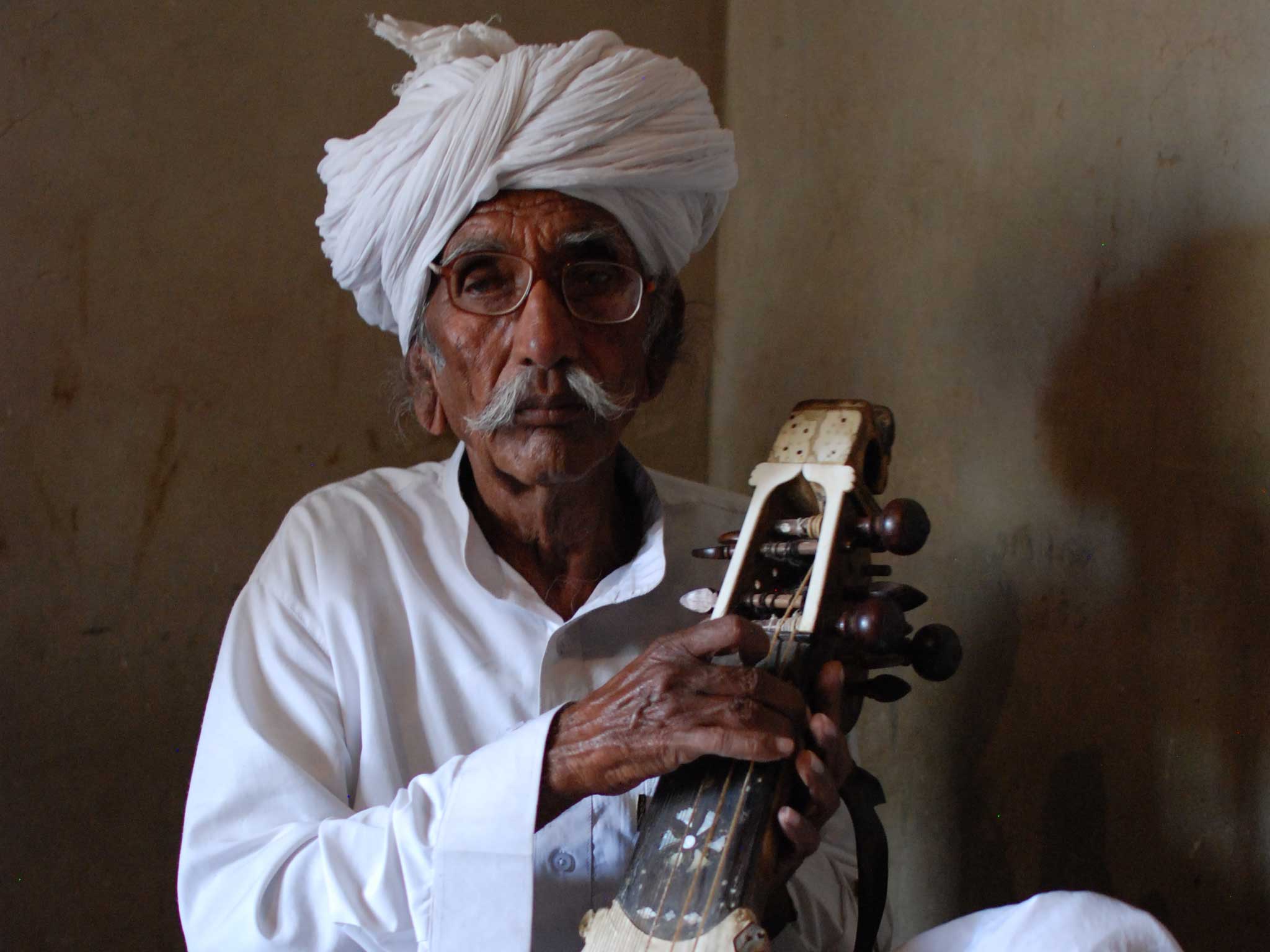Sakar Khan: Musician who worked with Shankar, Menuhin and Harrison

Your support helps us to tell the story
From reproductive rights to climate change to Big Tech, The Independent is on the ground when the story is developing. Whether it's investigating the financials of Elon Musk's pro-Trump PAC or producing our latest documentary, 'The A Word', which shines a light on the American women fighting for reproductive rights, we know how important it is to parse out the facts from the messaging.
At such a critical moment in US history, we need reporters on the ground. Your donation allows us to keep sending journalists to speak to both sides of the story.
The Independent is trusted by Americans across the entire political spectrum. And unlike many other quality news outlets, we choose not to lock Americans out of our reporting and analysis with paywalls. We believe quality journalism should be available to everyone, paid for by those who can afford it.
Your support makes all the difference.In the late 1960s, a decade or so after the desert city of Jaisalmer received its first paved road, the railway arrived. The authorities extended the track from the town of Pokhran and celebrations were planned for the arrival in Jaisalmer of the first train. They turned to Sakar Khan to create and perform a special piece of music.
Khan, a master of the kamancha, or kamaicha, a bowed stringed instrument, went away and come up with something he would continue to play for the next 45 years. Mimicking the sound of the engine itself, gathering pace, slowing down to take on water and then speeding up again until it finally arrives, his composition could not be called anything other than "The Train". He even followed up, later, with "Train Song No 2".
If that tune was essentially a piece of fun, Khan put in the hours learning, performing and collecting a huge amount of music dating back generations, perhaps centuries, handed down from father to son. He learned to play the 17-string instrument created from wood and goatskin at an early age from his father, Chunar Khan, himself a celebrated musician.
His skills would take him around the world and during the 1970s and 1980s he toured the US and Asia as part of acts promoting Indian folk traditions. In Belgium he performed with Sir Yehudi Menuhin and Ravi Shankar. In London he played with George Harrison. He also performed at major festivals in France, Japan and the Soviet Union. Though he did not seek them out, he received various awards from the federal and local authorities and in 2012 it was announced that he had been given the Padma Shri, India's highest civilian honour, for his contribution to Indian music.
Khan was born in the village of Hamira, in western Rajasthan, about 10 miles from Jaisalmer and close to the border with Pakistan. He was born into the community of manganiyars, one of two Muslim castes of hereditary musicians (the other group is the langas) who have traditionally performed for patrons from other, higher castes. Experts say the full complexity of the relationship between musicians and patrons is not fully understood, despite the work of ethnomusicologists such as the late Komal Kothari. But in exchange for this sponsorship – both financial and cultural – the musicians perform at events such as births, weddings and deaths. The repertoire is extensive and not all collected.
Away from the villages, at festivals in Delhi and overseas, the musicians will often jam with flamenco, African or even blues performers and many claim their ancestors migrated west, the original gypsies. Experts say there is no conclusive evidence of this but such performances can by themselves make a compelling argument for their being some shared history.
More recently, Khan's music was introduced to another generation of fans, partly as the result of a Delhi-based label, Amarrass Records, founded by four blues enthusiasts, who have spent the last three or four years visiting villages and town in Rajasthan and recording the musicians in their homes. By their own admission Khan did not need their help but he still recorded an album with them, At Home: Sakar Khan. At the age of 73, it was his first such solo recording.
Khan was always keen that the music he loved should be preserved and passed on to other generations. Three of his sons, Ghewar, Firoze and Dara, are also musicians and regularly performed with their father.
"Our songs are not dead yet, but I see that at some point they may be," Khan said in an interview last year. "The kamancha should stay alive and we should be able to teach it to our children. We hope that we can do this."
When The Independent visited Hamira, Khan and his three sons musician sons, set up their instruments on rugs that had been laid out close to a pond on the outskirts of the village in readiness for a field recording for the men from the record label. Among the tunes they performed was "The Train".
Andrew Buncombe
Sakar Khan, folk musician: born Hamira, Rajasthan, India 9 August 1938; married Bubba Devi (four sons, two daughters); died Hamira 10 August 2013.
Join our commenting forum
Join thought-provoking conversations, follow other Independent readers and see their replies
Comments